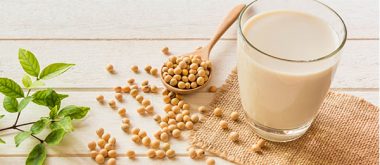Menopause is a period in every woman’s life marked by a reduction in the production of female sex hormones, cessation of menses and reduced chances of bearing a child. Some of the menopause symptoms include hot flashes, night sweats, weight gain, decreased bone density and irritability. In some women, these symptoms may be so severe that they may need to seek medical intervention. However, diet adjustments have proved to be useful for mild cases of these symptoms. In this article, we will look at how the keto diet and the chrono diet may affect menopausal symptoms.
Keto diet
The keto diet focuses on high fats and low carbohydrates, which has been shown to be effective in alleviating some menopause symptoms. A new study has indicated that a keto diet helps improve insulin sensitivity in menopausal women with endometrial or ovarian cancer. However, the research was inconclusive if the health benefits would be the same in postmenopausal women without ovarian and endometrial cancer. The study also found a relationship between insulin resistance and the hot flashes experienced by menopausal women.
Since fats take longer to digest, a ketogenic diet has shown to reduce cravings and hunger, which are both known to be menopause symptoms. Being on the ketogenic diet for two months will lead to reduced levels of ghrelin, the hunger hormone, and elevated levels of glucagon-like peptide 1 (GLP).
The role of ketogenic diet in worsening menopause symptoms
Despite the health benefits associated with the ketogenic diet in the management of menopause symptoms, the ketogenic diet also elicits some adverse side effects. It increases the serum level of cortisol, which is a stress hormone. High cortisol level is associated with reduced bone density, weight gain and increased blood pressure.
High cortisol levels stimulate the production of estrogen, which may potentiate a medical condition known as estrogen dominance. Estrogen dominance is a condition characterized by high serum estrogen levels and low serum progesterone levels. This may worsen menopause symptoms like weight gain and constipation.
Furthermore, long-term use of a ketogenic diet leads to keto flu, which arises due to the change in energy sources from glucose to fats and the drastic change in carbohydrates reduction. Keto flu may worsen some menopause symptoms like hair loss, fatigue, irritability and sleep disorders due to hot flashes and night sweats.
 Chrono diet
Chrono diet
Chrono diet is a diet set out by nutritionists that helps with weight loss through intermittent fasting. The secret behind the chrono diet is to have a substantial breakfast, a slightly heavy lunch, and a very light early supper. This allows for a 12-hour period of fasting that will lead to the breakdown of stored fats. During chrono dieting, timing is everything so that one can set a timely eating rhythm. There should be a four- to five-hour gap between the three meals so that one can fast overnight.
Other chrono diet approaches include fast days and dinner canceling. In the fast days program, a participant chooses certain days in the week where they cannot eat any solid foods. The rest of the days in the week one should eat the three meals on time. The dinner canceling program incorporates either the 18:6 rhythm or the 20:4 rhythm, where one fasts for 18 hours or 20 hours per day.
The chrono diet was suggested by a French doctor, Dr. Delabos, who suggested that failure to eat during certain times will stimulate your body to secret hormones that will burn the stored foods to release energy. The chronobiologic explanation behind the chrono diet is that in times of starvation during the intermittent fasting, the body produces beta-hydroxybutyrate, which burns biological energy stores in the absence of glucose.
What are the benefits of the chrono diet in menopausal women?
There will be a significant weight loss at reduced efforts for menopausal women. In addition, the chrono diet will help alleviate menopause symptoms that predispose menopausal women to cardiovascular diseases due to reduced estrogen levels. Instead, the integrity of the blood vessels is preserved due to the destruction of body fats and bad cholesterol.
Other foods that aid in the management of menopause symptoms and are recommended for menopausal women are phytoestrogen-containing foods like soybeans, peanuts, flax seeds, black tea, berries and grapes. Others include dairy products, whole grains, fruits and vegetables.

 Chrono diet
Chrono diet



